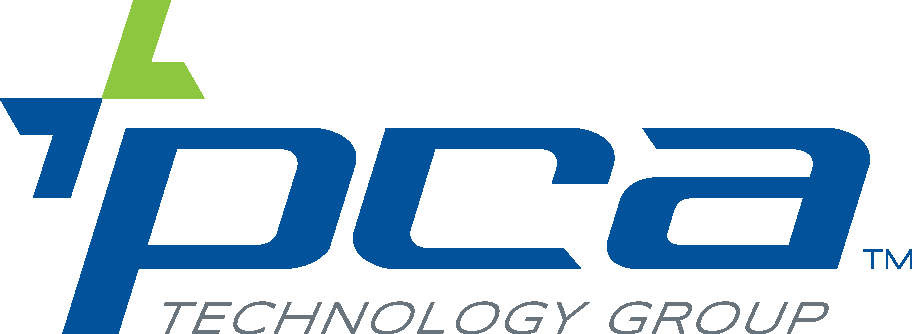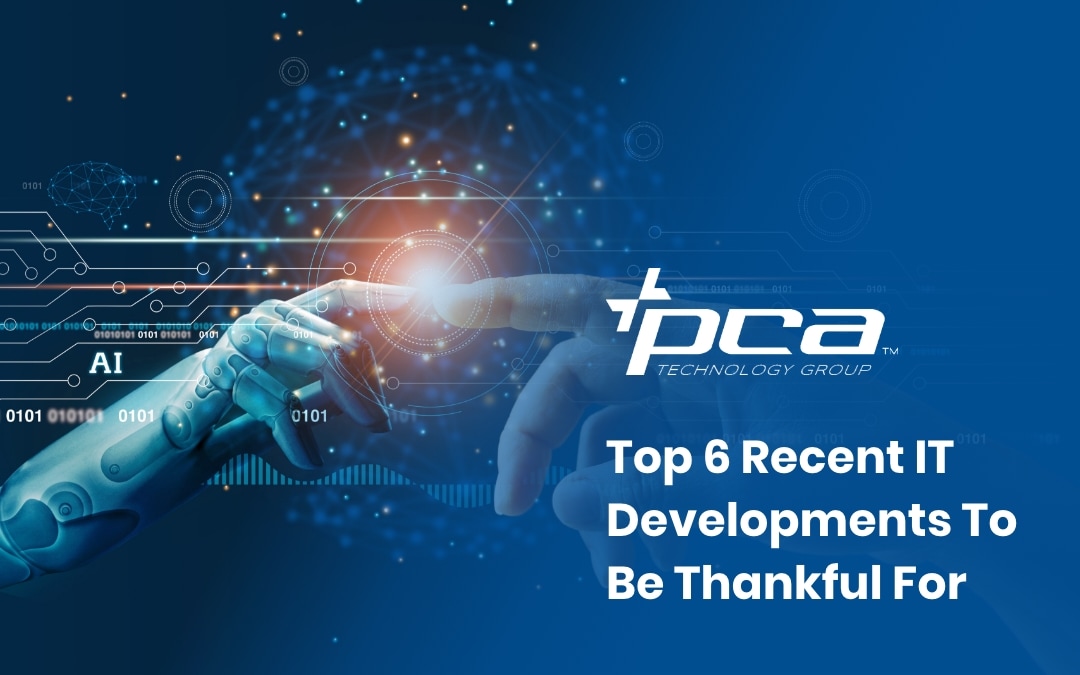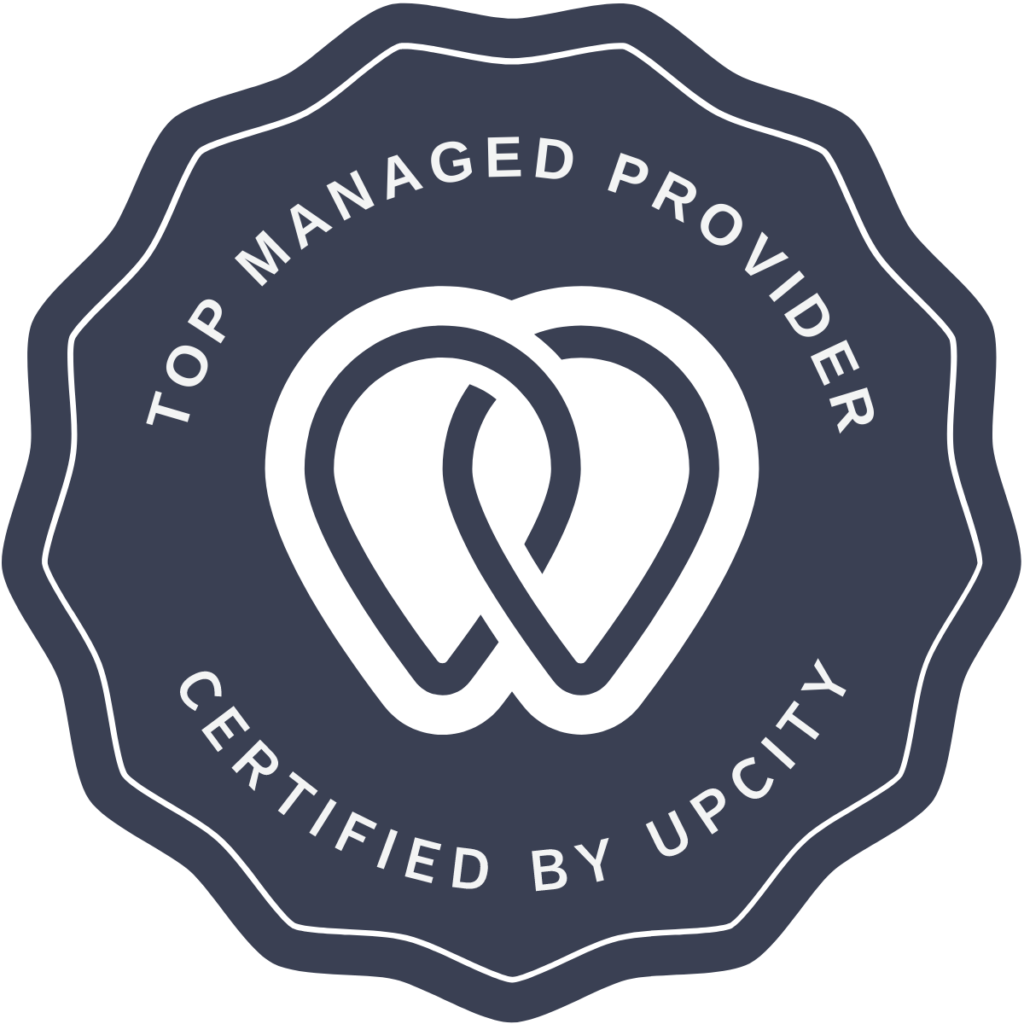With Thanksgiving on the horizon, it’s a great time to reflect on the things that make our lives better, both personally and professionally, such as family, friends, or a job. At the same time, there may also be those who are thankful for the things that make their lives easier, such as technology. In recent years, there have been many technological advancements in IT that have made a remarkable and positive impact on our lives, helping us work smarter, stay safer, and connect in ways that were once unimaginable.
From cybersecurity innovations that protect valuable data to tools that streamline communication, there’s so much to appreciate about the advancements driving our industries forward. In this spirit of gratitude, we’re highlighting the top six recent developments in IT and the benefits they bring to the table.
Top 6 recent IT developments
These six innovations are transforming both personal and professional experiences, creating new possibilities and enhancing efficiency across industries.
5G technology
5G represents the latest evolution in mobile network technology, offering faster speeds, reduced latency, and enhanced connectivity over its predecessors. The latest generation can process larger volumes of data simultaneously, supporting a wider range of applications and meeting the increasing demands of modern technology.
The benefit: 5G significantly enhances communication and data transfer for individuals and businesses. Users enjoy seamless streaming and quicker downloads. For businesses, 5G enables Internet of Things (IoT) devices to function more effectively, allowing for better data collection and analysis. Overall, 5G technology paves the way for innovation and efficiency across industries.
Multifactor authentication (MFA)
MFA is an access control measure that requires users to provide two or more verification elements in addition to traditional usernames and passwords. These elements may consist of something they possess (a code sent to a smartphone), or something specific to them (a fingerprint or facial scan).
The benefit: MFA substantially reduces the threat of unauthorized access. Even if hackers obtain a password, the extra verification step makes it considerably more challenging for them to penetrate a system. In addition to protecting sensitive data, MFA strengthens trust in digital security practices.
Hybrid cloud solutions
With a hybrid cloud setup, companies use a combination of private and public cloud services. For example, they can use private clouds to store sensitive data and important applications while using public clouds for less-sensitive workloads and to scale up resources as needed.
The benefit: Hybrid cloud solutions make it easier for businesses to scale their IT to match growth and changing market needs without investing in cumbersome hardware or compromising security. This technology not only saves money but also allows businesses to respond faster to market changes, ensuring they stay competitive.
Generative AI
Generative AI refers to technologies that are capable of producing content based on a prompt from a human user. AI models, such as Gemini or ChatGPT, analyze existing data to generate new images, audio, and text. For instance, a generative AI model can write articles by learning from various styles and formats.
The benefit: Generative AI enhances creativity and efficiency across fields. Businesses can use it to produce content quickly, saving time and resources. AI technology also opens up new possibilities for innovation, allowing teams to brainstorm and explore ideas that might not have been considered otherwise.
AI-driven threat detection
AI-augmented threat detection models analyze network traffic, system logs, and user behavior to define what normal activity looks like. By establishing a baseline of typical patterns, these models can identify deviations that might indicate a potential threat, such as unusual login locations, irregular data access, or unexpectedly high network traffic.
The benefit: AI security systems excel at identifying potential threats quickly by analyzing vast amounts of data in real time. Unlike traditional security systems that rely on predefined signatures or known threats, AI can detect unfamiliar or novel threats based on patterns and behaviors. If an anomaly — such as unusual network traffic or unexpected login behavior — doesn’t match recent threat intelligence, AI can still flag it as suspicious by comparing it against a baseline of normal behavior.
Moreover, AI can respond automatically to an identified threat. AI-augmented security immediately triggers alerts, isolates affected areas, and initiates countermeasures to minimize the damage to the company — all without human intervention.
VoIP technology
VoIP, which stands for Voice over Internet Protocol, converts sound into digital data. As a result, VoIP enables calls to be transmitted over the internet at a lower cost compared to conventional landlines.
The benefit: Beyond cost savings, VoIP provides flexibility by allowing users to make and receive calls from computers and smart devices, including long-distance calls. Additionally, VoIP typically includes advanced features, such as video calling and conference capabilities, that improve overall communication effectiveness.
Access the latest in IT by partnering with an MSP
While we’re thankful for these recent technological advancements, accessing and integrating these innovations can be complex and costly. Implementation often requires specialized skills. Fortunately, managed service providers (MSPs) like PCA Technology Group can simplify technology adoption. Contact us today to learn more.


